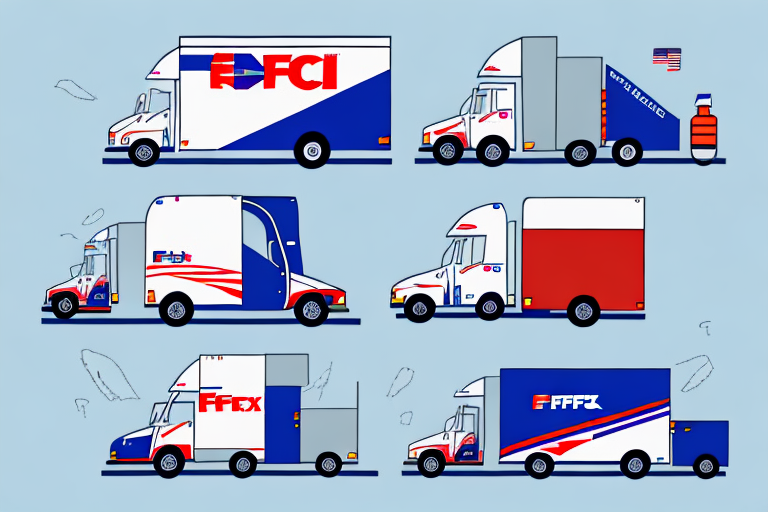Understanding the Relationship Between USPS and FedEx
The shipping industry is a cornerstone of global commerce, with key players like the United States Postal Service (USPS) and Federal Express (FedEx) leading the charge. This article delves into the intricate relationship between these two giants, exploring their history, collaboration, competition, and the impact on consumers and businesses.
Historical Background of USPS and FedEx
Founding and Evolution
The USPS was established in 1775, making it one of the oldest courier services in the world. As a government agency, USPS primarily handles letter delivery and package services across the United States. In contrast, FedEx was founded in 1971, emerging as a pioneer in overnight shipping and expanding into a global logistics powerhouse.
Growth and Expansion
Over the decades, USPS has maintained its extensive network of over 31,000 post offices nationwide, ensuring widespread accessibility. FedEx, leveraging technological advancements, has grown into a multinational corporation with operations in more than 220 countries and territories, offering a diverse range of shipping and logistics solutions.
Collaboration Between USPS and FedEx
FedEx SmartPost Partnership
One of the significant collaborations is the FedEx SmartPost service. In this arrangement, FedEx handles the transportation of packages to local USPS facilities, where USPS completes the final mile delivery. This partnership allows for cost-effective shipping, especially for lightweight and non-urgent packages.
International Shipping Cooperation
For international shipments, FedEx often partners with USPS to utilize its established global network. This collaboration enhances the efficiency and reliability of cross-border deliveries, ensuring packages reach remote destinations that might be challenging for FedEx alone.
Competitive Dynamics in the Shipping Industry
Service Offerings and Market Position
While both USPS and FedEx operate in the shipping sector, their service offerings cater to different market segments. USPS excels in delivering mail and small packages, providing affordable options like Priority Mail and First-Class Mail. FedEx, on the other hand, offers expedited services such as International Shipping and Overnight Delivery, targeting businesses and consumers requiring rapid delivery.
Pricing Strategies
USPS typically provides more affordable rates for smaller and rural shipments, benefiting from its vast network of post offices. Conversely, FedEx's pricing is structured around package size, weight, and delivery speed, making it a preferred choice for larger and time-sensitive shipments.
Service Comparison: USPS vs. FedEx
Delivery Speed and Reliability
FedEx is renowned for its fast and reliable delivery services, offering options like same-day and next-day delivery. USPS, while not as swift, provides reliable services with extensive coverage, particularly beneficial for residents in remote areas.
Tracking and Customer Support
Both USPS and FedEx offer robust tracking systems. FedEx's tracking is often praised for its real-time updates and detailed information. USPS has improved its tracking capabilities, especially with the integration of modern technologies, providing customers with comprehensive tracking data.
Cost Analysis: USPS vs. FedEx
Comparative Shipping Rates
When comparing costs, USPS generally offers lower rates for domestic shipments, especially for lightweight packages. For example, USPS Priority Mail starts at $8.70, while FedEx Ground rates begin around $7.30 for similar services, but can increase significantly with heavier packages and faster delivery options.
Cost-Effectiveness for Businesses
Small businesses often leverage USPS for its affordability in shipping small to medium-sized packages. Larger enterprises with bulk shipping needs might prefer FedEx for its scalability and advanced logistics solutions. According to the Business Insider 2023 report, businesses save approximately 15% on shipping costs by optimizing their carrier choices based on package size and delivery requirements.
Customer Satisfaction and Service Quality
Consumer Feedback
Customer satisfaction varies between USPS and FedEx. USPS customers appreciate the affordability and extensive reach, particularly in rural areas. However, some report issues with delivery times and package handling. FedEx customers often highlight the company's reliability and superior tracking capabilities but note the higher costs as a downside.
Industry Ratings
According to the 2023 J.D. Power Shipping Satisfaction Study, FedEx ranks higher in overall customer satisfaction compared to USPS, particularly in areas of reliability and delivery speed.
The Future of USPS and FedEx Collaboration
Technological Advancements
Both USPS and FedEx are investing in technology to enhance their services. Innovations such as automation, artificial intelligence, and drone deliveries are set to revolutionize the shipping landscape. These advancements aim to improve efficiency, reduce costs, and provide faster delivery solutions.
Potential Challenges and Opportunities
The evolving e-commerce market presents both challenges and opportunities for USPS and FedEx. Increased demand for speedy and reliable shipping services pushes both companies to innovate continuously. However, regulatory changes, economic fluctuations, and environmental concerns pose significant challenges that require strategic responses.
Conclusion
The relationship between USPS and FedEx is a blend of collaboration and competition, driving innovations that benefit consumers and businesses alike. By leveraging each other's strengths, they provide comprehensive shipping solutions that cater to a wide array of needs. As the shipping industry continues to evolve, both USPS and FedEx are poised to adapt and thrive, ensuring the efficient movement of goods in a rapidly changing world.




















